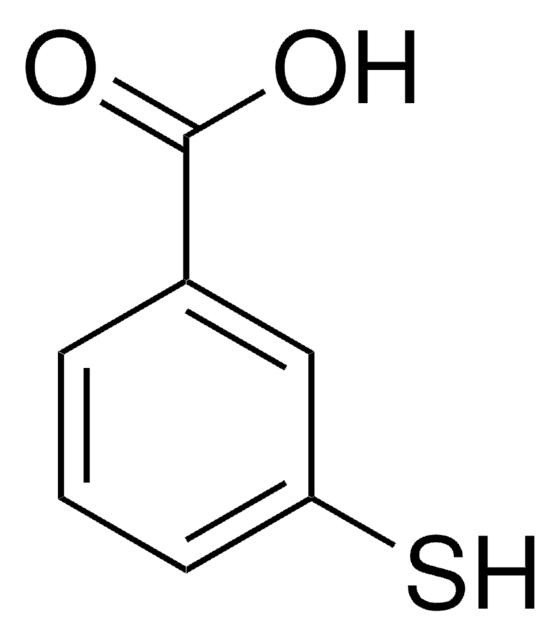About This Item
Recommended Products
Quality Level
Assay
90%
refractive index
n20/D 1.4846
density
1.0715 g/mL at 25 °C
storage temp.
−20°C
SMILES string
OC(=O)CCCCCS
InChI
1S/C6H12O2S/c7-6(8)4-2-1-3-5-9/h9H,1-5H2,(H,7,8)
InChI key
CMNQZZPAVNBESS-UHFFFAOYSA-N
Gene Information
rat ... Ace(24310)
Related Categories
General description
Application
Signal Word
Warning
Hazard Statements
Precautionary Statements
Hazard Classifications
Eye Irrit. 2 - Skin Irrit. 2 - STOT SE 3
Target Organs
Respiratory system
Storage Class Code
10 - Combustible liquids
WGK
WGK 3
Flash Point(F)
Not applicable
Flash Point(C)
Not applicable
Personal Protective Equipment
Regulatory Listings
Regulatory Listings are mainly provided for chemical products. Only limited information can be provided here for non-chemical products. No entry means none of the components are listed. It is the user’s obligation to ensure the safe and legal use of the product.
JAN Code
674974-1G:
674974-VAR:
674974-BULK:
Choose from one of the most recent versions:
Already Own This Product?
Find documentation for the products that you have recently purchased in the Document Library.
Customers Also Viewed
Articles
Recent research highlights tunable properties of inorganic nanoparticles, driving interest in optoelectronics.
Self-assembled monolayers (SAMs) have diverse applications; article compares benefits of alkylthiolates on gold SAM systems.
Our team of scientists has experience in all areas of research including Life Science, Material Science, Chemical Synthesis, Chromatography, Analytical and many others.
Contact Technical Service






![O-[N-(6-Maleimidohexanoyl)aminoethyl]-O′-[3-(N-succinimidyloxy)-3-oxopropyl]polyethylene glycol 3,000 Mp 3,000](/deepweb/assets/sigmaaldrich/product/structures/296/558/8fba6773-c240-41a2-ac1d-15c2185ceddd/640/8fba6773-c240-41a2-ac1d-15c2185ceddd.png)





